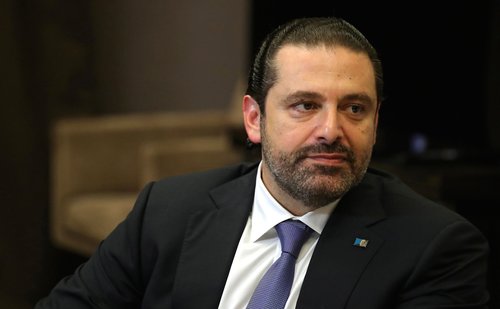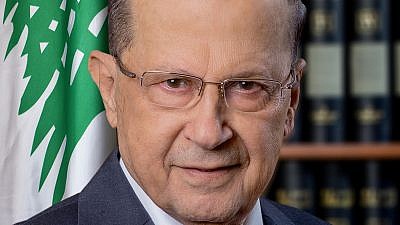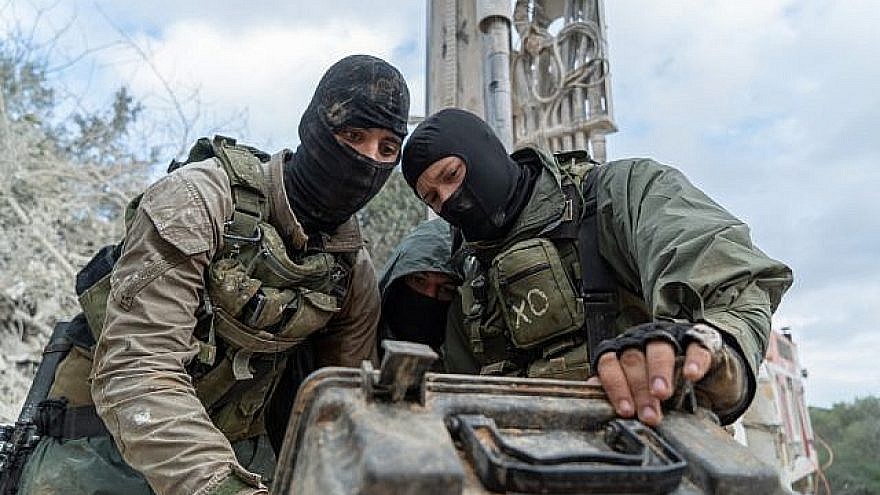Inside Lebanon, Hezbollah wields unrivalled military power, but it is also engaged in increasing its political power. It achieved this goal through the newly formed Lebanese government, which has seen the Iranian-backed terrorist organization expand its control.
In recent days, 30 Lebanese ministers have been sworn in, following exhaustive negotiations. Eighteen of them are from Hezbollah’s March 8 Alliance, while 12 are from the rival March 14 alliance, headed by Lebanese Prime Minister Saad Hariri.
These include the budget-rich Health Ministry, which will allow Hezbollah to strengthen its standing among its base, the Shi’ite population of southern Lebanon. This ministry will also enable Hezbollah to treat its wounded Syria war veterans.

Speaking to JNS, Mizrahi, a former Deputy National Security Adviser for Foreign Policy and a former intelligence analyst for the Israel Defense Forces, said that from Israel’s perspective, Hezbollah’s continued takeover of the Lebanese political system is bad news.
At the same time, she noted, the development also deepens Hezbollah’s responsibility to the Lebanese state, and offers proof for Israel’s claim regarding Lebanon’s responsibility for the actions of the terror organization, as well as Iran’s growing influence.
“This is first of all negative,” said Mizrahi, “since this is a terrorist organization that forms a threat to Israel and that is gradually taking over Lebanese government assets for its benefits.”
Asked if Hezbollah’s growing stake in Lebanese politics could also act as a restraining factor—forcing it to take civilian interests into account before initiating any new aggression against Israel—Mizrahi said the potential for increased restraint existed.
Still, she cautioned, Hezbollah’s military rise and its growing integration into politics combine to position it as a “central element of power” in Lebanon.
By extension, this has seen the dangerous influence of Iran grow in Lebanon.
‘Hezbollah consolidates its influence’
On Feb. 10, Iranian Foreign Minister Mohammed Zarif touched down at Beirut, where he offered support for the new Lebanese government. The visit is an indication of Iran’s growing dominance of the country, despite the fact that sections of the Lebanese population, particularly among Sunnis, vehemently oppose the Iranian-Shi’ite ascension unfolding before their eyes.
The IDF’s website has described the current president of Lebanon, Michel Aoun, as a known ally of Hezbollah, who often defends the organization’s activities and its armament program.
“In order to evade monitoring of money transfers, Hezbollah consistently works to weaken the Lebanese banking system by means of deterrence and influence over top bankers, usually of Shi’ite origins,” the IDF stated.
“In order to evade monitoring of arms transfers, Hezbollah maintains a network of influence over various border crossings, including Hariri Airport, Beirut Seaport and the customs authority,” it said. “Through Hezbollah-affiliated mayors and mukhtars [heads of villages], Hezbollah consolidates its influence over public services, civilian infrastructure and its own public outreach.”
Meanwhile, Hezbollah has turned Lebanon into a large rocket and missile base, aiming an estimated 130,000 projectiles at Israeli cities, military facilities and strategically sensitive locations.
‘US continues to assist the Lebanese military’
“The new government is part of the Iranian takeover of Lebanon,” said Ely Karmon, a senior research scholar at the International Institute for Counter-Terrorism in Herzliya. “Not only a takeover of southern Lebanon, but of the entire country.”

Karmon said any restraint forced on Hezbollah from its expanded political role would only hold up as long as this benefits the organization and its Iranian sponsor.
“What Hezbollah does depends on the Iranian leadership and on what [Iranian Supreme Leader Ali] Khamenei orders. If the Iranians decide on certain operations, that would be the straw that breaks the camel’s back. Hezbollah would act on orders that it receives from Iran,” assessed Karmon.
He pointed to the 2006 cross-border kidnap attack by Hezbollah on Israeli soldiers as an example of an incident that Iran instigated, and which the Iranians and Hezbollah failed to understand would lead to a war.
“They did not understand [former Israeli Prime Minister Ehud] Olmert or [former Israeli Defense Minister Amir] Peretz. The Iranians were facing G-8 sanctions and initiated this attack in response,” Karmon said, referring to the incident that led to the Second Lebanon War.
Meanwhile, Qatar has also begun to influence Lebanon, seeking to replace the Saudi role of bankrolling the state. While the Saudis were involved to push back against the Shi’ite axis of Iran and Hezbollah, Qatar’s attitude towards Iran “is ambivalent,” said Karmon. “I don’t think that, when the moment of truth comes, Iran would take the strategic interests of Lebanon or of Hezbollah into account.”
“The U.S. continues to assist the Lebanese military,” Karmon said, referring to some $1.6 billion in military aid since 2006, and the transfer of light attack aircraft, armored personnel carriers and drones. Israel has warned in the past about Hezbollah’s growing cooperation with the Lebanese Armed Forces.
Brig. Gen (Res.) Nitzan Nuriel, former director of the Counter-Terrorism Bureau at the Prime Minister’s Office, told JNS that there was no doubt that the increase of Iranian control over Lebanon is bad for Israel. At the same, he argued, Hezbollah’s involvement “inside the Lebanese government places more restraint on them and more constraints in activating their power from inside Lebanon against Israel. It allows us to view the Lebanese state as bearing responsibility for all that happens.”
The big challenge going forward, emphasized Nuriel, is the extent to which Hezbollah blends with—or takes control of—the Lebanese military.


























